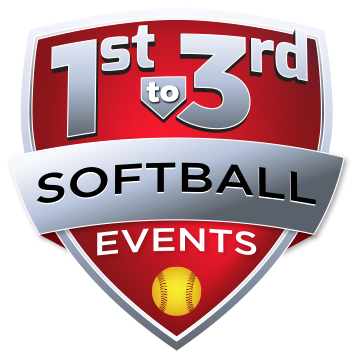SUBJECT: Concussion Baseline Testing Coming Soon – PROmote & PROtect Our Kids!
Dear families,
We are very excited to announce that beginning this summer, Premier Girls Fastpitch will launch a brand new initiative to PROmote and PROtect our kids and PROvide the most valid and reliable pre-injury baseline concussion testing to our athletes
PGF will be leading this charge from the front among all youth organizations. Please click FloSoftball’s article to learn more about the new standards we want to set about testing. Concussions can go undiagnosed or mismanaged leading to long term injury and an athlete’s inability to return to play. With reliable baseline testing an injured athlete can be properly managed allowing for a quick and safe return to competition.
We have contracted with ProACT, a company with 25+ years of dedication to teaching, coaching, protecting and rehabilitating young athletes. Program highlights include:
- Mobile – they will come to us so it is conveniently done on our site at practices/games
- Administered by trained professionals
- The same comprehensive baseline testing currently administered to professional athletes and over 7000 NCAA collegiate institutions which measures multiple aspects of cognitive functioning and motor skills/balance
- Annual pre-injury baseline testing (makes concussion management even more effective)
- App stored results accessible and owned by you unlike a high school administered exam (if needed for a post-injury test for comparison)
Please rally around the initiative and PROmote & PROtect Our Kids. Your participation can make all the difference in our ability to keep our kids safe.
We will be sending a follow-up about the registration and scheduling process so be on the lookout!
For more information visit premiergirlsfastpitch.com/pgf_concussion
Thank you for your continued support.
Premier Girls Fastpitch
Youth Sports and Concussions (Assembly Bill 2007)
A new law went into effect on January 1, 2007. Assembly Bill 2007 now applies these same regulations to athletes participating in youth sports organization. Softball is one of the 27 youth sports now required to:
*Remove an athlete who may have a concussion during a practice or game to be removed from the activity for the remainder of the day.
*Any athlete removed for this reason must receive a written clearance note from medical doctor trained in the management of concussion before returning to practice, and after completion to the Return to Learn and Return to Play Protocols.
*Before an athlete can start the season and begin practice in a sport, a concussion information sheet must be signed and returned to the league by parent/guardian.
PGF CONCUSSION WAIVER
SIGNS AND SYMPTOMS
Athletes who experience one or more of the signs or symptoms listed below after a bump, blow, or jolt to the head or body may have a concussion.
> SIGNS OBSERVED BY COACHING STAFF
* Appears dazed or stunned
* Is confused about assignment or position
* Forgets an instruction
* Is unsure of game, score or opponent
* Moves clumsily
* Answers questions slowly
* Loses consciousness (even briefly)
* Shows mood, behavior, or personality changes
* Can’t recall events prior to the hit or fall
* Can’t recall events after hit or fall
> SYMPTOMS REPORTED BY THE ATHLETE
* Headache or “pressure” in head
* Nausea or vomiting
* Balance problems or dizziness
* Double or blurry vision
* Sensitivity to light
* Sensitivity to noise
* Feeling sluggish, hazy, foggy, or groggy
* Concentration or memory problems
* Confusion
* Just not “feeling right” or is “feeling down”
ACTION PLAN
As a coach, if you think an athlete may have a concussion, you should:
1. Remove the athlete from play.
2. Keep an athlete with a possible concussion out of play on the same of day of the injury and until cleared by a health care provider. Do not try to judge the severity of the injury yourself. Only a health care provider should assess an athlete for a possible concussion.
3. Record and share information about the injury, such as how it happened and the athlete’s symptoms, to help the health care provider assess the athlete.
4. Inform the athlete’s parent(s) or guardian(s) about the possible concussion and provide them additional concussion information.
5. Ask for written instructions from the athlete’s health care provider about the steps you should take to help the athlete safely return to play. Before returning to play an athlete should:
> Be back to doing their regular school activities.
> Not have any symptoms from the injury when doing normal activities.
> Have the green-light from their health care provider to begin the return to play process.
——————————
For more information and to order additional materials, visit premiergirlsfastpitch.com/pgf_concussion


